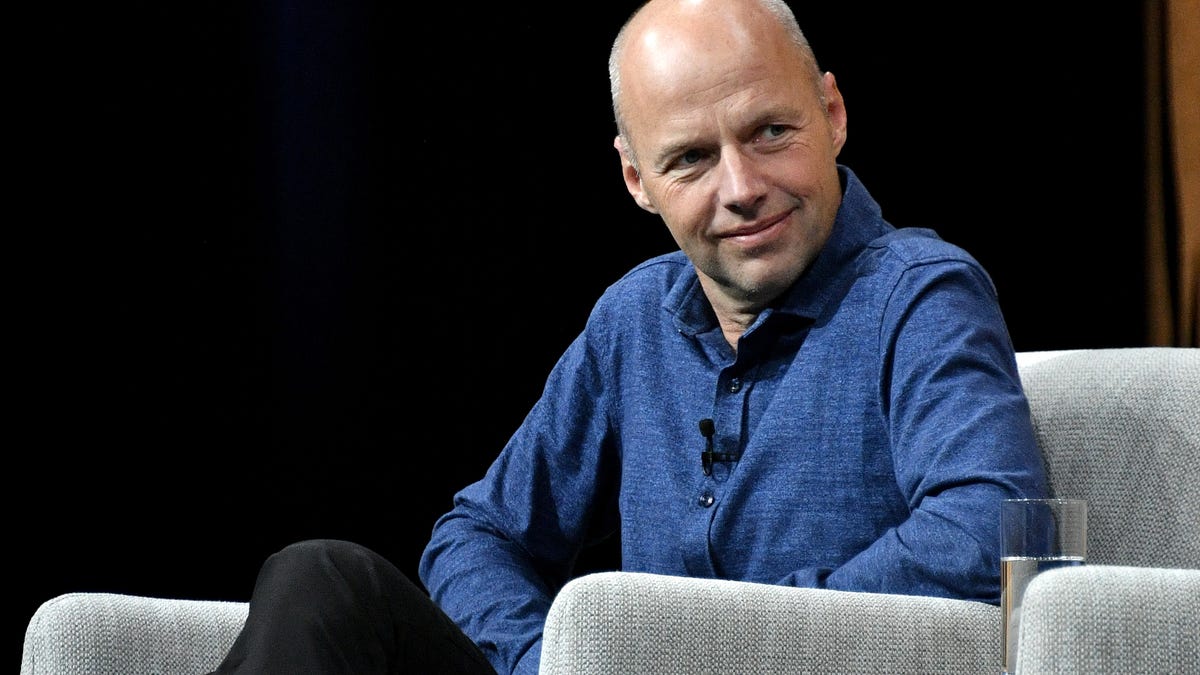AI expert: Super-smart cars are just a glorious beginning
Sebastian Thrun, who led Google's self-driving car effort, believes newly powerful computers will free us from drudgery.

Udacity President Sebastian Thrun spoke Thursday at Vanity Fair's New Establishment Summit.
Prepare for your car to become an intellectual giant -- and for you to like it.
In a highly optimistic forecast at the Vanity Fair New Establishment Summit in San Francisco, computer scientist Sebastian Thrun said artificial intelligence will radically reshape our lives for the better.
"In the last 200 or 300 years, we have made ourselves into superhumans," able to plow a field a thousand times faster than our ancestors, fly across the Atlantic Ocean and talk to a person in Australia from thousands of miles away, he said. Artificial intelligence will take us to the next step: "Rather than replacing our muscles, we're going to be making our brains stronger."
That'll start with artificially intelligent cars, said Thrun, who rose to Silicon Valley fame in his former job leading Google 's self-driving car project.
"All the unborn cars get born with the full wisdom of their forefathers. AI cars will outpace all of us because they can learn faster," said Thrun, still a Stanford professor and now president of online learning site Udacity.
The education of self-driving cars -- and the companies that make them -- has only just begun. Automakers from Toyota to Ford to Volvo all have projects under way, along with high hopes to have fleets of autonomous vehicles on the roadways in the coming years.
That enthusiasm echoes throughout the tech sector, too, well beyond Google. Elon Musk's Tesla Motors this week announced that all of its electric-powered cars, which already include a highly capable Autopilot feature, will come standard with the gear needed for fully autonomous driving. Ride-hailing company Uber, meanwhile, is in "the very beginning stages of becoming a robotics company," CEO Travis Kalanick said Wednesday at the Vanity Fair summit.
Artificial intelligence more broadly is spreading like wildfire across the technology industry, screening out junk email, labeling our photos, translating foreign languages and helping us type faster. If you speak to Siri, Alexa or Google Assistant, you're chatting with AI.
That's just the early stages. The ultimate goal with AI is for machines to think abstractly and on the fly, just as humans do.
Not everybody is as sanguine as Thrun about the possibility of AI machines taking over high-skill jobs.
One worrywart is President Barack Obama, who fretted this month that AI could push people out of work -- but not create replacement jobs, unlike earlier technology revolutions.
That point of pessimism tinges Obama's generally sunny outlook about AI. But Thrun's optimism is unalloyed.
"Seventy-five percent of us in offices do mindless work. The good news is that 75 percent of us will be freed from that mindless work," Thrun said. "In the history of humanity, every time a shift like this happened, we became better human beings. The experiences and culture we built so were much more valuable because we all stopped working on farms."
First published October 20 at 5:44 p.m. PT.
Updated October 21 at 5:32 a.m. PT: Added background on AI and self-driving car projects.

